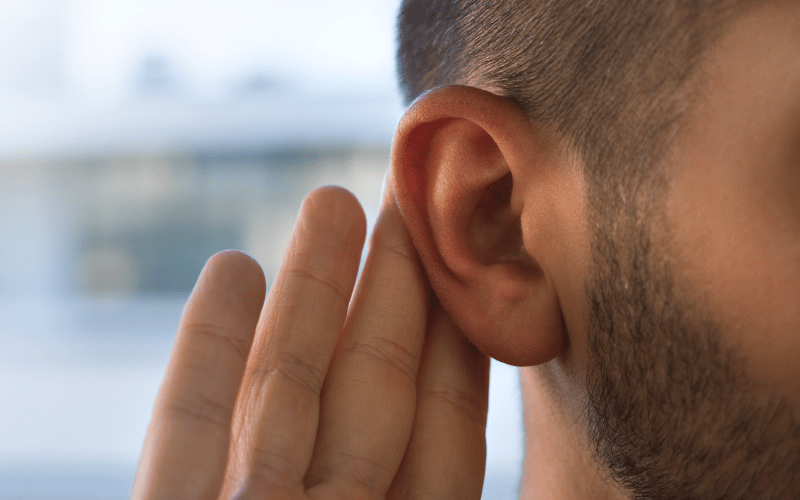Symptom 8: Hearing Loss

CMT’s tentacles occasionally reach the auditory system, leading to hearing challenges. Though not a primary symptom, a subset of individuals might experience mild to moderate hearing loss. This isn’t just about volume; it’s also about clarity. Sounds become muffled, conversations less distinct, and the vibrant world of audio, a bit more silent.
The mechanism behind CMT-induced hearing loss is still under research. It’s believed that the auditory nerve, responsible for transmitting sound signals to the brain, might get affected by the disease’s nerve degeneration aspect. This results in improper or weakened signal transmission, causing auditory challenges.
Hearing loss can be an emotional roller coaster. The gradual decline can be frustrating, leading to feelings of isolation. Social gatherings become overwhelming, music loses its richness, and conversations, especially in noisy environments, become taxing. There’s also the fear of missing out—missing crucial information, a loved one’s whisper, or the subtle sounds of nature.
The world of audiology offers solutions for CMT-associated hearing loss. Regular hearing tests can help detect and monitor the condition. Hearing aids, tailored to individual needs, can amplify sounds, making daily life more audible. Advanced technologies, like cochlear implants, hold promise for more severe cases, bridging the gap between sound and silence.
Life with hearing loss demands adaptability. It’s about finding new ways to communicate, relying more on visual cues, and using technology to one’s advantage. With the right support system, both medical and social, one can continue to enjoy life’s symphony, albeit with a few adjustments. (8)